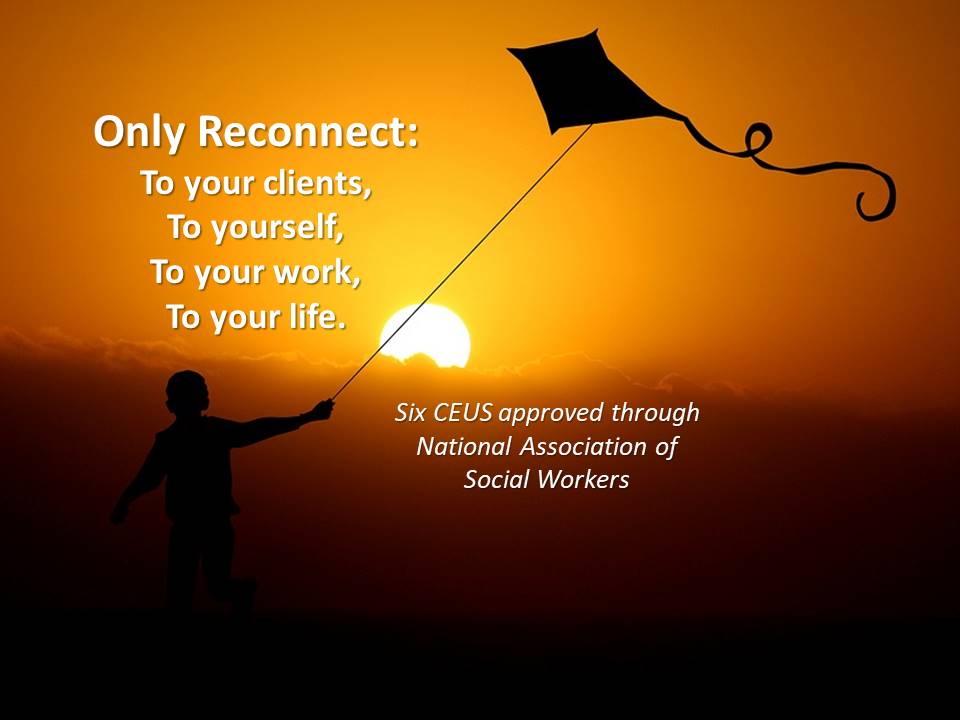(Originally posted May 2019)
TRIGGER WARNING: While this post is about self-care, I won’t mention anything expensive, like therapy, massages, fancy aromatherapy concoctions, craft chocolate, or shopping for new clothes. Television is in no way involved in self-care, although it can be a fun way to connect with colleagues.
Before I share my Top Five Antidotes to Toxic Stress in the Workplace, I need to make a confession. This June I will have been a psychotherapist for a whopping thirty years. Unquestionably I love this profession with all my heart; however, it hasn’t been a rosy journey. Since my first job, I’ve worked with people impacted by interpersonal violence (both perpetrators and victims). I’ve worked in hospitals and broken-down schools and jails and prisons and austere residential addiction treatment centers that felt a lot like jails and prisons.
And I’ve been sick for a hefty portion of that time: irritable bowel syndrome, rosacea, chronic fatigue and insomnia, depression and anxiety, shingles, and a few conditions that no one could even diagnose. Going to doctors and naturopaths and homeopaths and herbalists and body workers and acupuncturists and therapists has become a weird hobby of sorts, one that reminded me that I felt sick, but didn’t always deliver healing. I’ve had all manner of diagnoses, some that felt accurate and some that were tossed at me because the professional couldn’t figure out anything else, and I’ve had an equal measure of treatments, a few that worked and more that didn’t.
Few of my healers saw any connections between my stress-related illnesses and my work as a psychotherapist and social worker. When they did see a connection, they advised me to quit–not an antidote I desired–or pathologized me for staying–also not helpful.
It’s been frustrating, until, over time, I hit on what I’ll call the five epiphanies. These are strategies that helped me to stay healthy while doing the difficult work that I love
It’s All About the Body. Above and beyond how I made cognitive sense of the work, I was doing a terrible job taking care of my body. Chronic stress stimulates the release of cortisol and adrenaline, pesky hormones that pitch us into survival mode, narrow our focus, and compel us forget what our body needs, like sleep and healthy food and kind people to hang out with. Often times I go to work with noble ambitions to run or exercise at lunch. As the morning progresses, stressful things accumulate. Before I know it, I start to rationalize that I don’t need to exercise, that I should stay nose to the grindstone and work through lunch.
Sound familiar? This is cortisol and adrenaline talking–not my best selves in this pressured moment–and they’re not doing me any favors. Even though it may feel “counter-intuitive,” RESIST this siren call to stay put and veg at your desk. Even ten minutes of activity makes a difference. Now I think of running and working out and yoga as my medicine. I don’t do them to look great or lose weight. I do them to counteract the effects of toxic stress. I do them to stay healthy and of sound mind, which I need more than a non-clinical professional to do my best work with clients.
Get Outside. We already know that time outdoors, whether in sunshine or rain or snow or hail, walking or running, is good for the soul. It counteracts the crappy onslaught of cortisol and adrenaline. But time in nature has other powerful qualities. Reminders of the changing seasons recalls the cycle of birth, growth, maturity, decline, and renewal; that nature is always in a state of development, and we (and the systems we inhabit, whether a workplace or a community) are part of that natural progression. It normalizes the entropy we see all around us, reminds us that nothing is permanent, that eventually all things change and grow. The awareness, for me, keeps hope alive.
Every Job is Temporary. We get our jobs and then we pile all our debt on them (student loans, mortgages, credit cards, etc.). Our jobs don’t pay much, at least not in the beginning. It is easy to feel trapped, cornered by a brutal economy, rising needs and limited resources, and our own fatigue, which compounds the sense of hardship. This feeling, too, like the voices of cortisol and adrenaline, is false. We are never trapped in a job. It can just feel that way. With people I work with in clinical supervision, I often feel like a career coach, reminding them of their worth and their options, both of which are considerable. Every job is one developmental step in your career. SET SMALL GOALS you want to achieve before moving onto the next job. Get you LCSW or LPC. Finish building a program. See a few clients through long-term treatment. As Laura van Dernoot Lipsky is fond of saving, “Everyone needs a plan B.” Not so much because we’ll always pursue it; more because it reminds us that we aren’t trapped.
Accept Suffering. It seems weird to mention now. In the early stages of my career I could not get used to my proximity to the toxic stresses of my clients’ lives, even though I knew that, as a social worker, I had a commitment to working with the most vulnerable communities of people. Their suffering reverberated with my life, absorbed into my soul, stuck to my guts. It took me a long time to develop a tougher skin and even longer to develop grace to recognize that this is what I signed up for. Part of the delay was that I couldn’t accept that suffering was part of my job description; what the Northwest therapist and writer Bonnie Badenoch calls “co-suffering.” It continues to mystify me that agencies don’t include suffering as part of our job description. That might sound like a joke, but it’s not.

Find Meaning in Work. The American poet Adrienne Rich thought the most radical political act was to find meaningful work. She wrote, ” Insist on a life of meaningful work, insist that work be as meaningful as love and friendship in our lives.”
Many of us chose this field because we wanted to have a social impact, to be part of a social change that was greater than ourselves. The onslaught of bureaucratic demands, administrative rules and audits, agency politics, and the insidious ways in which those stress hormones can narrow our focus: these factors can lead us to lose perspective and forgot who we are and who we need to be. My brother, an engineer, tells the story of a pro bono project he did once: designing a database for a huge historic gathering at the Vietnam Veteran’s Memorial, a tool that enabled war vets to find fellow travelers, other vets, with whom they had lost touch. He found the experience exhilarating–and exceptional. He told me it was the first time he had felt like he had the opportunity, as a professional, to produce a social good. I try to remember that not everyone has the privilege of doing this kind of mission-driven work. Doing work that is less meaningful is stressful in a completely different way.
WORKSHOP
Getting Unstuck: Expanding Use of Self in Trauma-informed Practice
If you want to go more deeply into ways to combat toxic stress and feeling stuck and trapped, consider joining me for my fall workshop on “Getting Unstuck: Expanding Use of Self in Trauma-informed Practice” November 8, 2019 at Lane Community College in Eugene, Oregon. We’ll go more deeply into the neurobiological framework, both to understand how it contributes to a sense of stuckness, with our clients, our families, and ourselves, and also to pave the way forward toward movement and creativity.


